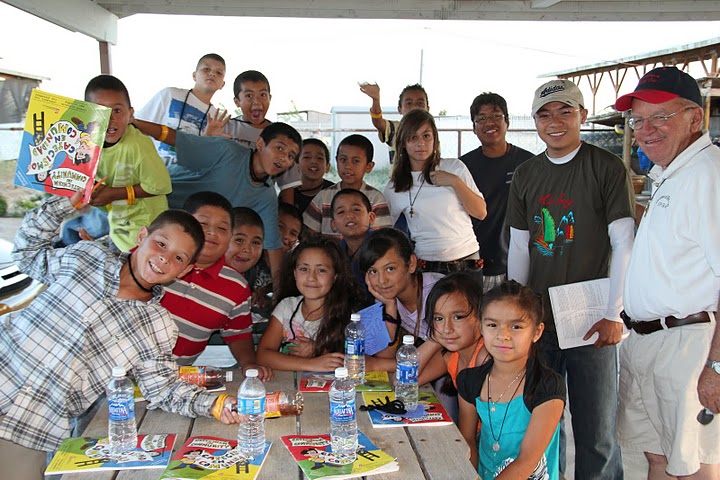“Bienaventurados los que lloran” / “Blessed are they who mourn”
CARTA NAVIDEÑA:
“Bienaventurados los que lloran”
En este año de COVID, ha habido mucho duelo, y Jesús prometió bendiciones a los que lloran. Hace un mes, un hombre de treinta años murió en un trágico accidente automovilístico. La familia quería que ofreciera la misa funeraria, pero yo estaba enferma de COVID. La misa se trasladó al duodécimo día de mi enfermedad, con la esperanza de que saliera del protocolo COVID a tiempo. El día antes del funeral todavía tenía fiebre, y otro sacerdote celebró la misa. Pasé el protocolo la mañana del funeral y pude ofrecer el sepelio en el panteón. Los padres y dos hermanas menores me pidieron que celebrara una misa conmemorativa al fin del novenario para su hijo y hermano.
La costumbre hispana del novenario es una bendición para quienes están de luto por la pérdida de un ser querido. La costumbre es que la familia y los parientes se reúnan durante nueve días después del funeral para rezar el rosario por el difunto. Cuando es posible, un sacerdote ofrece la misa por los difuntos el noveno día. La comunidad apoya a los dolientes en su búsqueda de una nueva normalidad en sus vidas después de la pérdida de un ser querido.
Fui a la casa de la familia por una noche del novenario y no solo escuché historias del joven. Era un hombre bueno, trabajador, amante de la diversión, con una sonrisa constante y un futuro prometedor. Su hermana de veinte años me informó que no había recibido su Primera Comunión. Me dijo que varias veces se inscribió de niña en el programa de preparación sacramental, pero los catequistas no la adelantaron para recibir el sacramento. Si bien todos los demás miembros de la familia recibieron la Eucaristía, ella no. Ella entendió bien el significado del sacramento. Le pregunté si deseaba recibir su Primera Comunión en la Misa conmemorativa de su hermano.
Si bien la noche de la Misa conmemorativa honró el dolor de una familia que lamenta la pérdida de un buen hombre, hubo felicidad al recibir a una hermana fiel en la Eucaristía.
La misión redentorista se identifica:
“Los más abandonados, a los que la Congregación es enviada de modo especial, son aquellos a quienes la Iglesia no ha podido proporcionar aún medios suficientes de salvación; los que nunca oyeron el mensaje de la Iglesia o no lo aceptan al menos como buena nueva, y finalmente aquellos a quienes perjudica la división de la Iglesia”. (Constitución 3 del C.SS.R.)
Los medios de salvación incluyen escuchar la Palabra de Dios y recibir la presencia de Cristo en los sacramentos. Como congregación predicadora, nuestra misión es invitar constantemente a las personas a recibir la Palabra de Dios como “Buenas Nuevas”. Cuando la persona recibe la Buena Nueva, sigue recibiendo la gracia del sacramento. Consolar a los que lloran es el esfuerzo de toda la iglesia. En este tiempo de Adviento, una familia, mientras estaba de luto por la pérdida de un hijo y un hermano, también recibió el consuelo del sacramento y la Misa conmemorativa fue un gran signo de curación para la familia. Que la promesa de la Navidad traiga curación y consuelo para todos los que lloran y creen.
(Mañana: “Deja que los niños vengan a mí”).
CHRISTMAS LETTER:
“Blessed are they who mourn”
In this year of COVID, there has been a lot of mourning, and Jesus promised blessings on those who mourn. A month ago, a thirty-year-old man died in a tragic car accident. The family wanted me to offer the funeral Mass, but I was ill with COVID. The Mass was moved to the twelfth day of my illness, hoping that I would be off the COVID protocol on time. The day before the funeral, I still had a fever, and another priest celebrated the funeral Mass. I cleared the protocol on the morning of the funeral, and I was able to offer the interment at the cemetery. The parents and two younger sisters of the man asked me to celebrate a memorial Mass on the ninth day of their novenario for their son and brother.
The Hispanic custom of the novenario is a blessing for those mourning the loss of a loved one. The custom is that the family and relatives gather for nine days after the funeral to pray the rosary for the deceased person. When possible, a priest offers Mass for the deceased on the ninth day. The community supports the mourners as they seek a new normal in their lives after the loss of someone they love.
I went to the home of the family for one evening of the novenario and not only heard the stories of the young man. He was a good, hard working, fun loving man with a constant smile and a promising future. His twenty-year-old sister informed me that she had not received her First Communion. She told me that several times she enrolled as a child in the sacramental preparation program, but the catechists did not advance her to receive the sacrament. While all the other family members received Eucharist, she did not. She understood well the meaning of the sacrament. I asked if she wished to receive her First Communion at the memorial Mass for her brother.
While the evening of the memorial Mass honored the grief of a family mourning the loss of good man, there was happiness in welcoming a faithful sister to the Eucharist.
Our Redemptorist rule identifies our mission is to:
“The most abandoned, to whom in particular the Congregation is sent, are those for whom the Church has not yet been able to provide sufficient means of salvation, those who have never heard the Church’s message, or at least do not receive it as the “Good News”, and finally those who suffer harm because of division in the Church.” (C.SS.R. Constitution 3)
The means of salvation include hearing God’s Word and receiving the presence of Christ in the sacraments. As a preaching congregation, our mission is to constantly invite people to receive the Word of God as “Good News.” When the person receives the Good News, receiving the grace of sacrament follows. Comforting those who mourn is the effort of the entire church. In this season of Advent, one family, while mourning the loss of a son and brother also received the consolation of sacrament and the memorial Mass was a great sign of healing for the family. May the promise of Christmas bring healing and consolation for all who mourn and believe.
(Tomorrow: “Let the children come to me.”)






